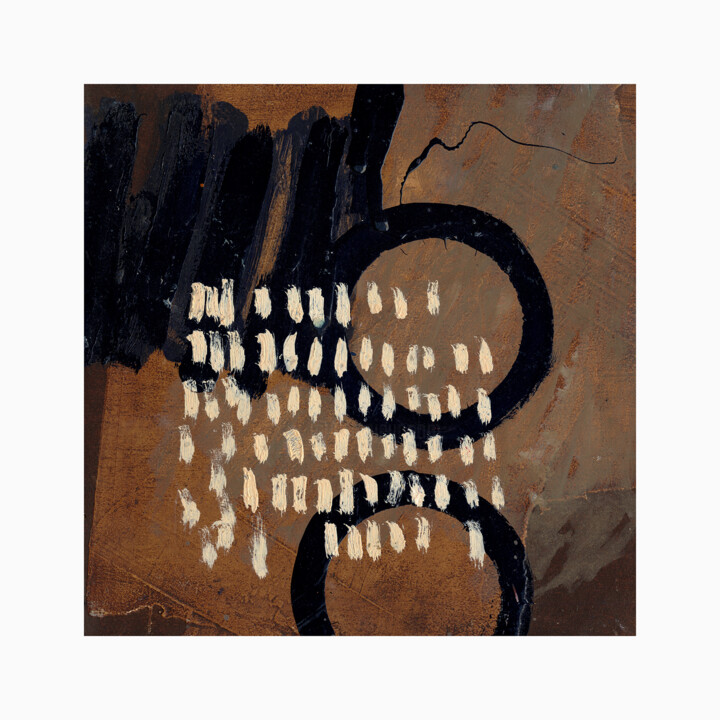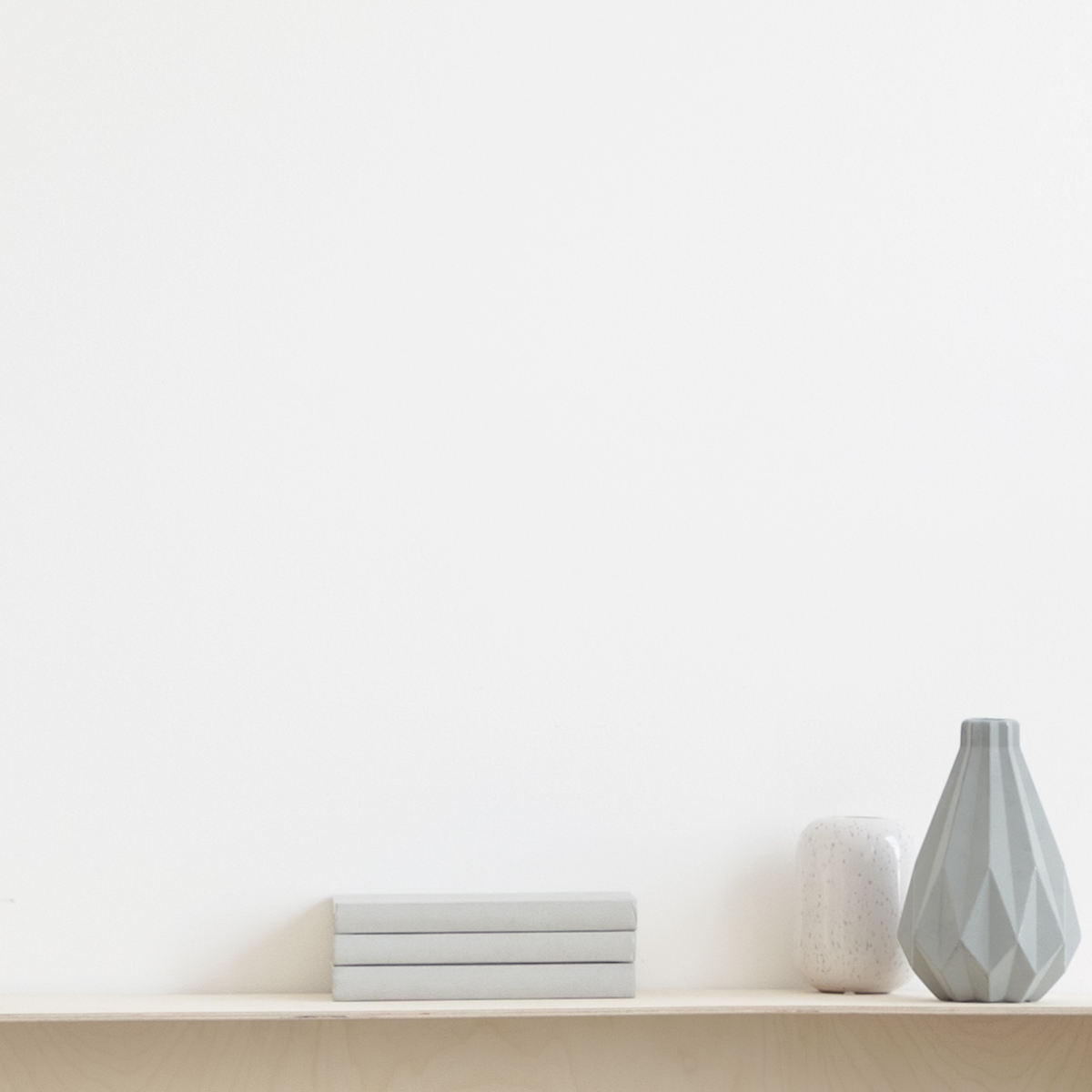




Let us know if you would like to see more photos of this artwork!
- Back of the work / Side of the work
- Details / Signature / Artwork's surface or texture
- Artwork in situation, Other...
Particules élémentaires I (série) (2023) Printmaking by Richard Grateloup
More info
- Packaging (Envelope) All artworks are shipped with a premium carrier, carefully protected and insured.
- Tracking Order tracking until the parcel is delivered to the buyer. A tracking number will be provided so that you can follow the parcel in real-time.
- Delay Worldwide delivery in 3 to 7 days (Estimate)
- Customs not included The price does not include customs fees. Most countries have no import tax for original artworks, but you may have to pay the reduced VAT. Customs fees (if any) are to be calculated on arrival by the customs office and will be billed separately by the carrier.
More info
- Trackable Online Certificate of Authenticity Authenticity Certificates can be verified online at any moment by scanning the artwork code.
- Artist Value Certification Experts study the work and career of an artist then establish an independent and reliable average price value. The average price value situates the artist on a price range for a given period. The experts may also be asked to establish a more precise estimate for a particular work.
More info
100% secure payment with SSL certificate + 3D Secure.
More info
-
Limited Edition (#2/5)
Printmaking,
Digital Print
on Paper
- Number of copies available 2
- Dimensions Height 11.8in, Width 11.8in
- Artwork's condition The artwork is in perfect condition
- Framing This artwork is not framed
- Categories Printmaking under $500 Abstract Abstract
Un intérêt particulier a été porté aux contrastes des matières (opaque/transparente, lisse/rugueuse, matte/brillante etc.) et à la lumière par le jeu d'un contraste évoquant le clair-obscur.
La peinture opère par couches, par glissements, par ajouts et retraits successifs. Chaque trace laissée, chaque geste déposé, s’inscrit dans une temporalité fragmentaire, comme une mémoire du faire. Ce n’est pas tant le geste qu’on y cherche, mais le moment où il échappe, où il reste — une résurgence. L’accumulation formelle répond ainsi à une logique de stratification, comme une métaphore des strates de savoir, de mémoire, ou d’expérience. Les signes blancs, dans leur organisation quasi scripturale, ne disent rien de lisible, mais évoquent, par leur rythme, une forme d’écriture silencieuse. Ce sont des empreintes de pensée à l’état brut.
La référence aux écritures blanches de Cy Twombly apparait en affinité : une manière de penser le geste pictural comme murmure comme trace. Ici, la peinture est, en soi, pensée matérialisée.
L’ensemble fonctionne comme un triptyque informel, une partition ouverte. Il n’y a pas de narration. Chaque tableau se tient pour lui-même tout en convoquant les autres. Les particules sont peut-être ces fragments de pensée, ces unités minimales de savoir qui, mises ensemble, produisent une forme sans nom, mais non sans sens.
Impression sur Canson® Infinity Edition Etching Rag 310g.
Motif 23cm, marges 3,5cm.
***
Digital edition created from an original work belonging to a mini-series of three oil and alkyd (glycero) paintings.
A particular attention was given to the interplay of material contrasts — opaque/transparent, smooth/rough, matte/glossy, and others — as well as to the use of light, notably through a chiaroscuro-like tension. This attention to contrasts operates not only on a visual level but also as a structural principle, guiding the viewer’s perception across the surface.
The painting proceeds through successive layers, gliding motions, additions and subtractions. Each mark, each gesture laid down, inscribes itself within a fragmented temporality — like a memory of the act of making. What is sought here is not so much the gesture itself, but the moment when it slips away, when it remains — a kind of resurgence. In this way, the accumulation of forms responds to a logic of stratification, evoking a metaphor of layered knowledge, memory, or experience.
The white signs — organized in a near-scriptural manner — do not convey anything legible in the conventional sense. Yet they evoke, through their rhythm and placement, a form of silent writing. These are imprints of thought in its raw state, not yet domesticated into meaning. The reference to Cy Twombly’s "white writings" emerges here as a point of affinity: a way of conceiving the pictorial gesture as whisper, as trace. Here, painting is not representation, but materialized thought.
The whole functions as an informal triptych — an open partition. There is no narrative structure. Each painting stands on its own, while simultaneously invoking the others. The "particles" might be understood as fragments of thought, minimal units of knowledge which, when assembled, produce a form that has no name, yet is not without meaning.
The silent dialogue between these units creates a space of tension and resonance, where matter and void, presence and absence, weight and suspension interact. The viewer is invited not to decode, but to dwell, to hover in that threshold zone where form emerges and withdraws.
In its digital translation, the image retains these ambiguities — this interplay between assertion and erasure, trace and disappearance. Far from attempting to "fix" the painting, the digital edition prolongs its logic: that of a potential image, never entirely stabilized, never closed.
This edition is printed on Canson® Infinity Edition Etching Rag 310gsm, a heavyweight, 100% cotton fine art paper known for its deep blacks, soft texture, and archival quality — chosen for its ability to honor the original’s material sensitivity.
Image size: 23 cm motif
Margins: 3.5 cm on all sides
What kinds of reflection can painting still offer?
For my part, I have always been drawn to the act of covering surfaces with coloured matter — a gesture that decorates, or even writes messages. In my early years, my practice was deeply nourished by Dada and by the game of 20th-century abstractions (with Antoni Tàpies holding a particularly prominent place for me). Without treating painting as a kind of refuge — since I refuse to exclude any medium from reflective potential — I remain attached to a pictorial gesture in which I try to bring together, through juxtaposition, the role of chance, the processes of making, and the (economy of) means deployed: to paint before representing?
I have been exhibiting since 1992. Without claiming any real schizophrenia, I have, since 2000, engaged in a constrained play of identities: one wolf to hide another. I have also worked under other names — totemic heteronyms… This game of hide-and-seek has ultimately allowed me to imagine my artistic practice as a variable-geometry and fragmentary object, alternately titled lAFABRIk.
-
Nationality:
FRANCE

- Date of birth : 1972
- Artistic domains: Works by professional artists,
- Groups: Professional Artist Contemporary French Artists











